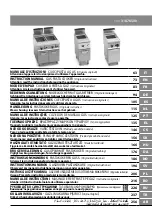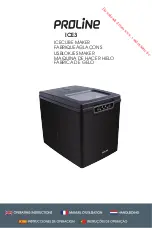
44
Troubleshooting and Maintenance
8.
Media.
Make sure your label stock is inkjet printable.
Many thermal label stocks look the same as inkjet but do
not allow the ink to soak into the surface of the media.
9.
Source File Image Mode.
The image mode of the source
file may be set to RGB instead of CMYK. This can cause
the color matching to be off. Change the image mode of
the original file, resave and reprint.
10.
Copper Contacts.
Clean the copper contacts on the back of
the print carriage and the contacts on the printhead with
rubbing alcohol.
11.
Image Resolution (DPI).
Try another Image. Perhaps the
resolution of the current image is not sufficient for a quali-
ty print. Many graphics suitable for viewing onscreen have
a DPI of 72. This is the minimum DPI for proper screen
display. However, if you print this image it will look blurry
and pixilated. 72 is a typical DPI for images or graphics
saved from web sites. We recommend a 300 dpi image.
12.
Cable.
Try another USB cable. Make sure that it is less than
6ft (2 Meters) long. Faulty cables or cables that are too
long interrupt communications which can result in print
quality issues.
13.
Saturation.
If ink is bleeding, decrease saturation in driver
preferences.
14.
Change the Printhead.
If print nozzles of certain colors are
still clogged after repeated cleanings it may be time to
replace the printhead. See Section 5G.
C. COLOR MATCHING AND DESIGN TIPS
Whether you contract your graphic design or do it yourself,
these guidelines will help you get the best quality labels out of
your LX900e.
1.
Image Size/Shape.
The image size should correspond with
the size of the label you will be printing. Note: If the
source image is smaller and must be enlarged to fill the
entire label space, this will affect the DPI. A 2" x 2" 300 dpi
label blown up to fit on a 4" x 4" label would have an
effective dpi of 75. This would not be a sufficient
resolution. See item 2.
Summary of Contents for LX900e
Page 4: ...iv...
Page 60: ...Printed in the United States of America P N 511271...













































